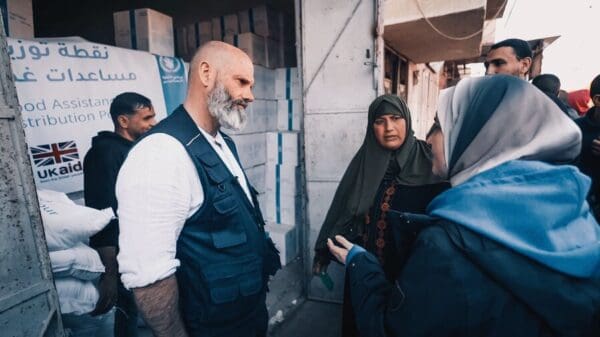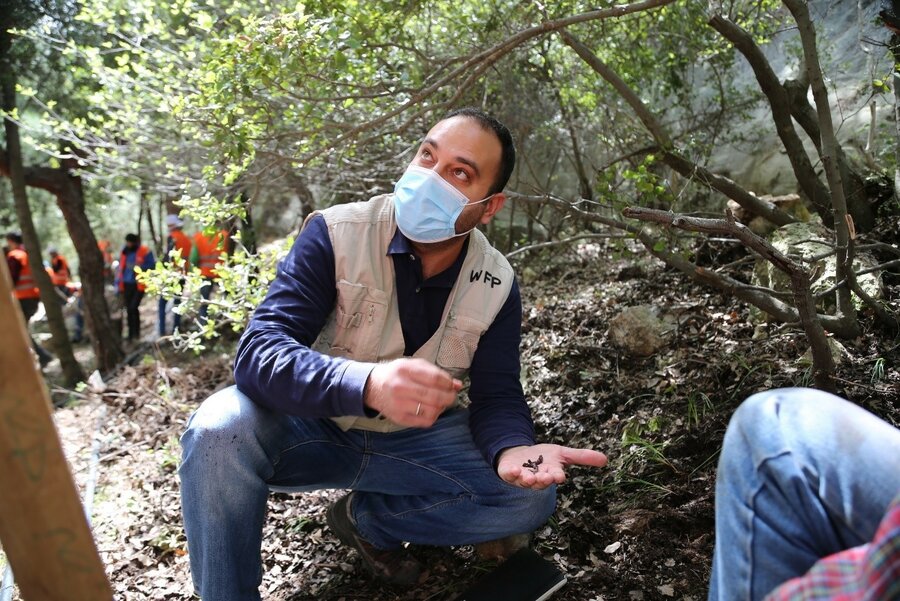
Mother Earth Day: ‘Earthworms Are Our Ecosystem’s Unsung Superheroes’
How a United Nations World Food Programme (WFP) forest management intervention is boosting Lebanon’s green cover and helping some of its most vulnerable people put food on the table.
At a U.N. World Food Programme forest management site in the north of Lebanon, Kassem Jouni, program policy officer for livelihoods, digs his hand into the soil. There, hidden from plain sight, an earthworm appears — an “unsung superhero” as he likes to call it.
Surrounded by U.N. World Food Programme and Lebanon Reforestation Initiative livelihoods project participants, Kassem explains that this tiny earthworm has a lot to offer.
“It leads to an increase in nutrient availability and a more stable soil structure,” he says, adding that an earthworm’s presence usually indicates soil conditions that are ideal for plant growth.
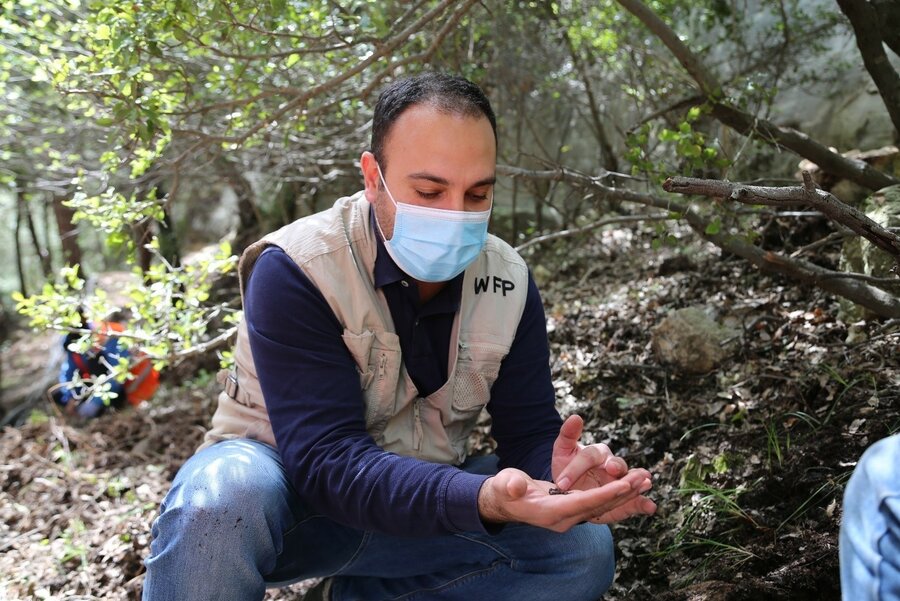
Earthworms are ‘superheroes’. They support both people and the planet.
The U.N. World Food Programme’s forest management interventions are boosting livelihoods and preserving Lebanon’s greenery. Designed in collaboration with local authorities, such projects create common grounds for people, be they refugees or Lebanese, who find themselves grouped together — this, in turn, breaks down social barriers and enhances cohesion.
Currently, we are pruning and cleaning existing forests to reduce the risk of fire — which we call fuel reduction within our program. The pruned materials from our forests are used by local communities and farmers either to produce compost or as mulch for crops — both are rich in organic material that favor the environment for more earthworms.
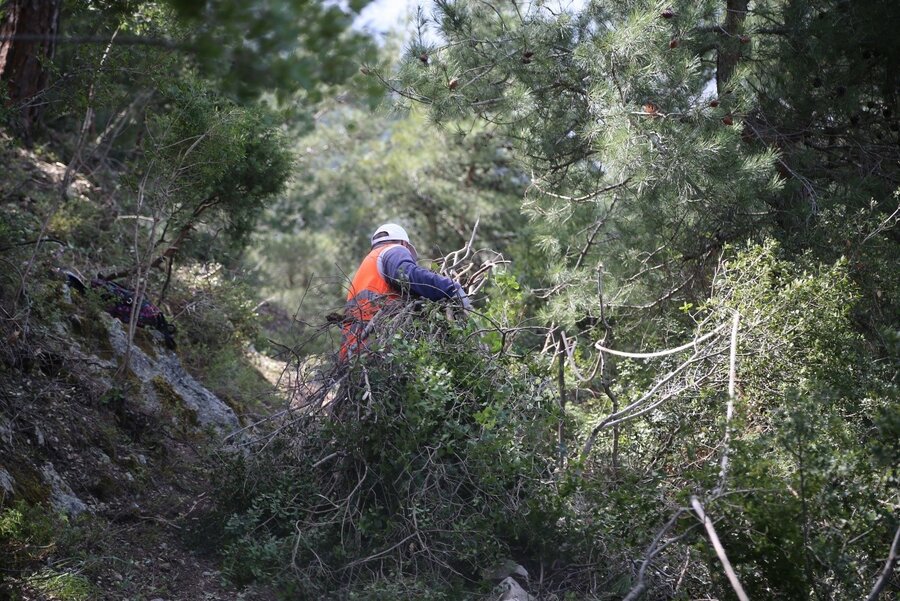
The livelihoods project creates work for participants as Lebanon suffers its worst-ever economic crisis.
Since 2017, U.N. World Food Programme and partners have planted 673,325 native seedlings in 2,926 acres of public lands and established 1,287 miles of walking and hiking trails aimed at supporting ecotourism.
By applying advanced techniques related to soil rehabilitation and land reclamation, training on innovation in agriculture and supporting sustainable agriculture programs, the U.N. World Food Programme provides an overarching response that has already protected and preserved 1,154 acres of Lebanese forests from the risk of fire.
In addition to supporting the planet, the U.N. World Food Programme’s livelihoods program has become a backbone for thousands of vulnerable families in Lebanon, helping them put food on the table. In 2020 alone, more than 53,000 people have benefited by securing their basic food needs through these short-term opportunities.
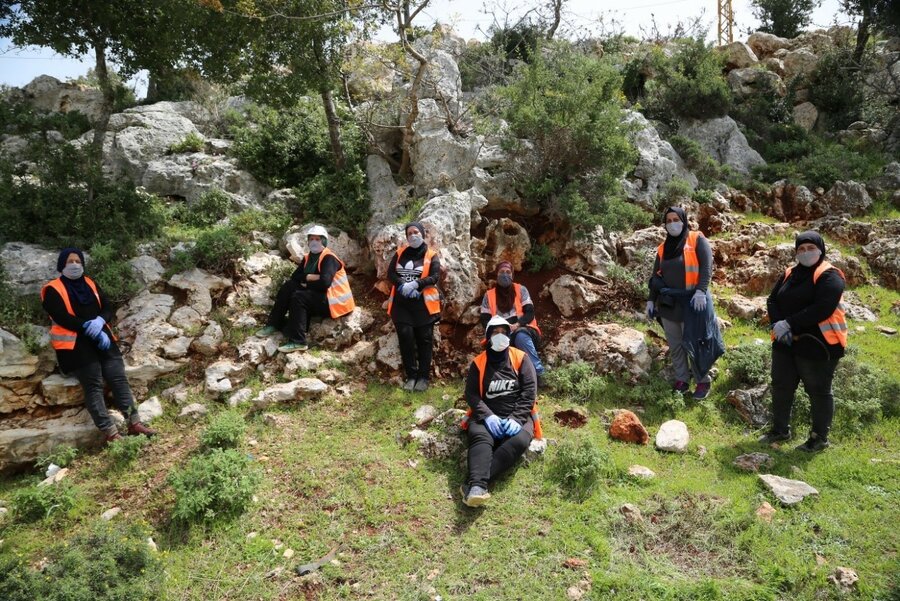
Participants in WFP’s livelihoods project forge friendships.
“It was very refreshing to meet one of my neighbours on this project site,” says Bassima who wanted to get to know new people in her neighbourhood but was practicing physical distancing, spending most of her time indoors. “Here, we all wear masks. This makes me feel safe. It also makes me happy as I am giving back to my country and especially my hometown. Dirty clothes are a sign of hard and professional work.”
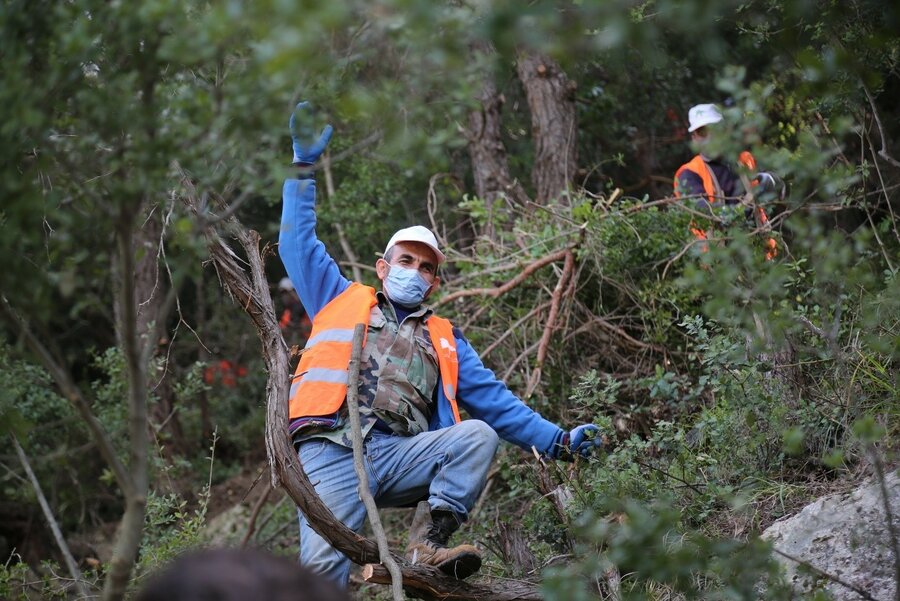
WFP’s activities have already protected and preserved 467 hectares of Lebanese forests from the risk of fire.
And work opportunities during Lebanon’s worst financial crisis in decades are few and far between. Prices soar and soar. The country’s annual food inflation rate increased by 402.3 percent in 2020.
Over the past year and dragging, the socio-economic, political and health situation has continued to deteriorate. The impact of COVID-19 and the Beirut blast had devastating effects with thousands of families sinking further into poverty.
Diala, one of Bassima’s newly made friends echoes her words, “This is the first income-generating opportunity I’ve had in a long while. I’m buying basic needs but as the days move forward, this is becoming more and more difficult.”
U.N. World Food Programme Lebanon’s livelihoods projects like this one are financed by Germany’s Federal Ministry of Economic Cooperation and Development.
Learn more about the U.N. World Food Programme’s work in climate action.
This blog originally appeared on WFP’s Stories on April 21, 2021 and was written by Edmond Khoury.
